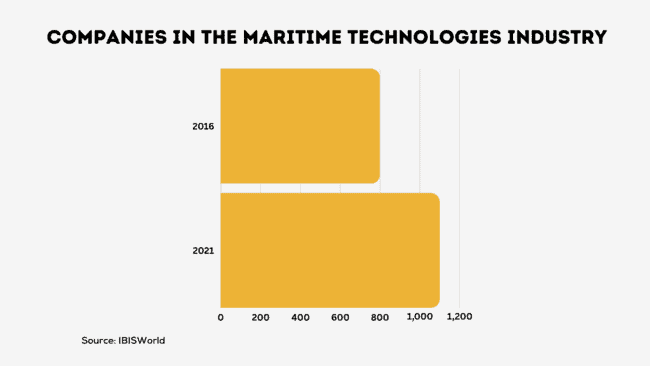The Impact of Technology on Maritime Law and Shipping Operations

The maritime industry is sailing towards a future driven by technology. Innovations, from autonomous ships to blockchain-enabled documentation, are revolutionizing maritime operations. Let’s dive deep into how technology is transforming maritime law and shipping practices, including how GNSS technology plays a crucial role in enhancing navigation accuracy and efficiency. Discover more about GNSS capabilities here.
Revolutionizing Maritime Operations through Advanced Technologies
The global maritime sector is increasingly adopting cutting-edge technologies like artificial intelligence (AI), the Internet of Things (IoT), and blockchain. With the market for smart ships projected to reach $14 billion by 2030 according to Allied Market Research, we’re witnessing a technological revolution in maritime operations.
Major shipping companies are pioneering the use of alternative fuels, such as liquefied natural gas (LNG) and hydrogen fuel cells, to reduce emissions. Ports are leveraging automation and the Internet of Things (IoT) to achieve new levels of efficiency. These technologies are driving progress across maritime operations.
Legal Implications of Technological Advancements in the Maritime Industry
New ship technologies are steering maritime travel into an exciting modern era, but also raising tricky questions about laws and rules that oversee shipping operations. As vessels keep getting smarter and more advanced, the guidelines governing oceans and seaports need to catch up.
Many sleek new autonomous boats and ships operate fully on their own without any captain or crew members on board. This allows amazing possibilities, but makes us wonder – if accidents happen, who is responsible when no humans are actually present? Laws written long before such technologies existed don’t offer clear answers.
Predictive systems can also analyze reams of data to warn crews ahead of time about potential problems with equipment or suggest safer routes based on weather forecasts. This is incredibly helpful for avoiding disasters at sea. However, if warnings get ignored or missed, does this change the legal impact? Courts and lawmakers have some complex puzzles to work out.
Enhancing Safety and Efficiency in Maritime Operations
As more and more information gets stored and transmitted digitally rather than on paper, new cybersecurity issues come into play. What rules apply if a ship’s sensitive data gets hacked? How can we make communication tools safer but still easy to use?
It may seem like maritime laws are struggling to keep pace with technologies more advanced than the Titanic! However, the news isn’t all confusing. Clear benefits for safety and environmental protection have already emerged, guided by simpler updates to global agreements that most ships abide by.
Statistics show crashes, oil spills, and other accidents falling a dramatic 38% in just the past 10 years alone. Much credit goes to radar screens, warning sensors, and navigation charts so high-tech they make GPS for cars look basic! Empowered by better data to avoid disasters even in poor visibility, ships now traverse waters far more soundly.
Impact of Technology on Maritime Environmental Regulations
Statistics show crashes, oil spills, and other accidents falling a dramatic 38% in just the past 10 years alone. Much credit goes to radar screens, warning sensors, and navigation charts so high-tech they make GPS for cars look basic! Empowered by better data to avoid disasters even in poor visibility, ships now traverse waters far more soundly.
And exciting news for conservation – cleaner engines and alternative energy sources like solar and wind power are making ships far less polluting. Advanced tracking helps catch illegal dumping in the act too. Investing billions over the coming decades to achieve ambitious environmental targets, the entire industry charts a course toward a greener horizon thanks to futuristic tech on board.
So while lawmakers debate how to update policies for trickier questions raised by automation, we can appreciate how innovation already steering ships and systems brings much clearer sailing ahead!
So How Does Maritime Law Affect Businesses on the Whole?
Manufacturing and Trading Companies: Some companies that manufacture or trade goods likely rely heavily on cargo ships and freight carriers at some point. Getting products efficiently from a factory overseas to retail stores worldwide involves navigating maritime laws and policies. However, in the world of business, things rarely go as planned. In terms of maritime law, when dealing with specific unforeseen events a maritime accident attorney is the safest bet. Why? Well, to navigate the specific rules and complexities that come with maritime law, getting a specialist is invaluable.
Rules vary between countries on requirements, taxes, documentation, and liability based on what port the ship comes from or docks in.
Cruise Lines, Passenger Ferries, and Tourism Operators: The companies must follow laws ensuring guest safety and health. They are also subject to pollution rules on dumping waste. Crew member rights and vessel maintenance standards impact costs.
Fishing vessels: These vessels have quotas and zone guidelines so ecosystems aren’t depleted by overcatch. Port authorities make sure ships properly dispose of oil, chemicals, or waste rather than releasing it into the ocean. Penalties for safety violations or illegal dumping can be severe under maritime laws designed to sustain sea life.
Offshore Oil drillers, Underwater Construction firms, and Salvage Companies: These companies carry out operations at sea with specialized equipment. Their business model and technology must comply with jurisdictional regulations. Renewable energy producers building offshore wind farms also navigate complex governance to build and maintain turbines in coastal waters under maritime jurisdiction.
The Future of Maritime Shipping: A Tech-Driven Landscape
The convergence of maritime operations and technology will remain a key trend shaping the industry’s future trajectory. According to a report by SeaAsia, it is likely that up to 30% of international trade volume will be handled by autonomous ships by 2030.
Port infrastructure will need to evolve in sync, with integrated systems for navigation, berthing, charging, and cargo handling to service crewless vessels. The use of shipboard data will become ubiquitous, covering operational performance, compliance monitoring, and predictive maintenance.
Blockchain platforms streamlining paperwork and providing transparency in the logistics chain may potentially become the norm rather than the exception. The integration of renewable energy sources and green fuel alternatives will also accelerate.
Undoubtedly, technology will radically reshape maritime shipping, enabling safer, swifter, and more sustainable operations.
Explore the endless possibilities of words at www.wordplop.com – where creativity meets expression.
FAQs: Addressing Common Queries
How does new technology make ships safer?
Advances in radar, navigation tools, satellite tracking, and weather prediction help crews avoid accidents and spills. Updated engineering systems also monitor problems before they become serious. Automatic identification systems pinpoint locations to prevent collisions.
Does technology help ships follow environmental laws better?
Yes. Digital equipment tracks fuel use, waste levels, and emissions to meet rules on pollution. Software models help set optimal speeds to save fuel. Digital sensors alert crew quickly about leaks or waste dumping issues so they can respond promptly.
Can crew members use technology to know maritime laws and rules better?
Yes. Databases, online references, and compliance tools help ships keep current on regulations in different ports that update frequently. Digital reporting also documents correct procedures were followed as proof for inspections.
How does technology help ships adhere to environmental laws more effectively?
Authorities use flight, satellite, and underwater data to reconstruct incident timing and factors like weather conditions precisely. Digital analysis of ship components, conversations, and damaged elements uncovers causes.
Can technology be used to actually help enforce maritime rules?
Yes. Tracking systems verify rule compliance remotely in real-time, like monitoring ships that should avoid protected habitats. Some ports use drones, software, or sensors to detect pollution. Automated cameras document unethical crew behavior. Rapid information sharing helps authorities intercept illegal cargo shipping faster as well.







